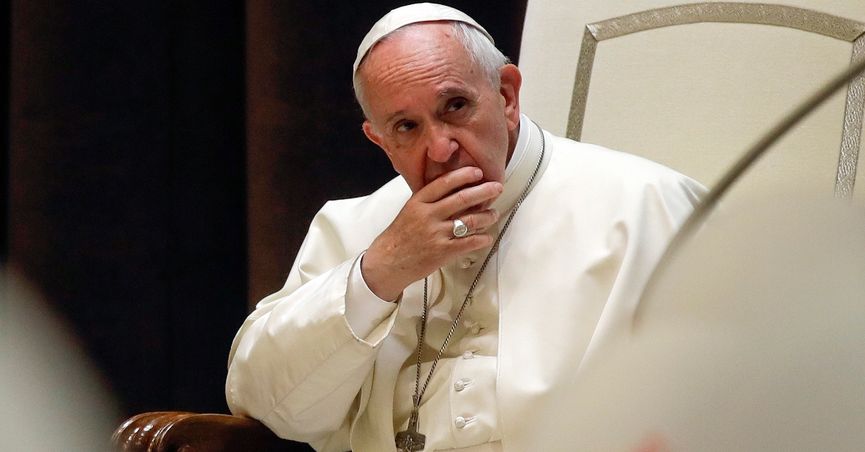
Something that has become increasingly clear after more than five years with Pope Francis at the helm of the Roman Catholic Church is that he has strong pastoral reasons for addressing issues. He is also a pope who tends to launch processes and then waits to see what emerges from the ensuing debates. This may have played a role in recent developments summarized by journalist and Catholic affairs expert Sandro Magister in the Italian magazine L’Espresso (July 1). On three different occasions this year, according to Magister, Pope Francis gave the impression of backtracking, without making clear if it was a real change of mind or merely a tactical retreat. One of these concerned the document prepared by the German Bishops’ Conference that seemed to pave the way toward allowing communion for Protestant spouses of Catholic believers. This document drew opposition from seven German bishops, leading the Congregation for the Doctrine of the Faith to send a letter praising the efforts while stating that the document was not yet ready for publication. The bishops promoting the document had felt they had been following the same path as the pope, and that he had hinted support for the intercommunion proposal.
The perception of Pope Francis as reformist continues to cause alarm in some Catholic circles, despite their support for his determined stand on issues such as the sanctity of life. One reaction worth noting was the letter sent to the pope in 2017 by Fr. Thomas Weinandy, an American Capuchin who is a member of the International Theological Commission, claiming that “a chronic confusion seems to mark your pontificate” and stressing “the ambiguity of your words and actions.” Among the books with various viewpoints published during the past five years about Pope Francis, a recent volume in Italian, Papa Francesco e il cattolicesimo sud globale (Franco Angeli, 2018), edited by Verónica Roldán, attempts to offer social scientific insights and to emphasize the significance of the Latin American background and experiences of the current pope. Roberto Cipriani (University Roma Tre) sees a guideline for understanding Pope Francis’ actions in his concern for social justice and not just helping the poor. His support for the “theology of the people” needs to be distinguished from liberation theology, since it refuses the Marxist framework of class struggle but is linked to a great esteem for popular piety.
Enzo Pace (University of Padova) examines Pope Francis’ emphasis on synodality as a potentially strong force for reform, promoting decentralization in contrast with a monarchical principle. The synods are no longer supposed to be mere sounding boards amplifying papal decisions, but real participants in consultative processes. He adds that if this principle comes to be implemented like concentric circles at all levels of the Catholic Church, it might lead to a transformation of its entire internal organization. Regarding the Catholic opponents to Pope Francis, Massimo Introvigne (CESNUR) remarks that they are far from forming a united front, ranging from political opponents concerned not so much about theological issues as about things like immigration or Islam, to those who miss the pontificate of Benedict XVI and, less numerous, hardline traditionalists. Despite strong criticism of Pope Francis in some circles, it remains a minority phenomenon and there are no real prospects for the great revolt that some hardline traditionalists have been hoping for, Introvigne writes. At a February meeting at the Royal Institute of International Affairs, Massimo Franco, political editor at Corriere della Sera, seconded the view that “a schism is not in sight.” Observing, however, that time was not working for the current pope’s reforms (or attempted reforms), Franco added that the real question mark concerned whether the future successor to this pope would continue his reforms or not, despite Francis’ efforts to shape the next conclave by selecting new cardinals from many different countries.
(For access to the audio and transcript of Massimo Franco’s talk, “Five Years of Pope Francis: The Catholic Church in the Modern World,” go to: https://www.chathamhouse.org/event/five-years-pope-francis-catholic-church-modern-world)
